
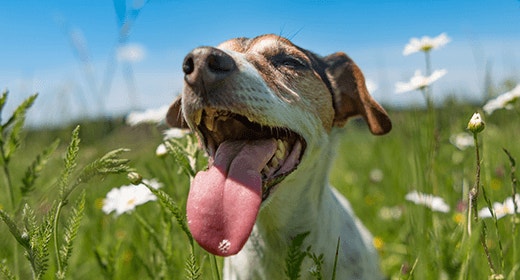
Panting is when dogs breathe rapidly with their mouth open and tongue hanging out like a slobbery yo-yo. You know what we’re talking about. So other than as an effective method of drool distribution, why do they do it?
Some dogs may occasionally pant when they’re excited or afraid, but the main reason is to help keep themselves from overheating.
In a recent IAMS™ survey,* a majority of dog parents believed that dogs have sweat glands. But dogs don’t sweat like humans do. “We have glands all over our body. Dogs can’t do that,” says Opens a new windowDr. Jo Gale, BVetMed CertLAS MRCVS, Senior Manager, Global Science Advocacy at Waltham Petcare Science Institute. “They have sweat glands on their paw pads, but that’s the only place.” They rely on panting to let out warm air and bring in cooler air. All that drool and fluid in their mouth helps dissipate the heat as well. It’s like a big soggy air conditioner.
Most mammals, and even many birds, pant to regulate their temperatures. Humans are some of the only creatures who cool down by perspiration. Imagine what dogs think of us losing fluid from all over our bodies, sweating through our clothes and needing to wipe our faces all the time. Fortunately, they love us anyway.
Panting is normal, but it expends lots of water, so make sure Fido’s bowl is full of clean, cool H2O, especially during warmer months.
Opens a new windowDr. Tammie King, Applied Behavior Technical Leader at Waltham Petcare Science Institute, suggests “seeking out cool shade, giving them water and stopping physical activity.”
And it goes without saying — but we’re going to say it anyway — that you should never leave your dog in your vehicle on hot days. Even if they’re driving. Which you shouldn’t let them do either.
Some dogs run a higher risk of overheating. “It’s very easy for dogs to overheat on very hot days,” cautions Dr. Jo Gale. “Any dog with a squashed face — bulldogs, pugs, Pekingese — their nasal passages are not able to cool the air as much.” She added that dogs with heavy coats, overweight dogs, and very old or very young pets also can’t control their body temperature as effectively.
If your pooch seems to be panting more than usual or at unusual times, check to see if they’re having trouble breathing, are shaking, or their gums or tongue have noticeably changed color. If so, make sure they have access to water, get them to a cool place and contact your vet.
*Surveyed U.S. dog owners, age 18+
Sample Size: n=201
Fielded May 8-10, 2020
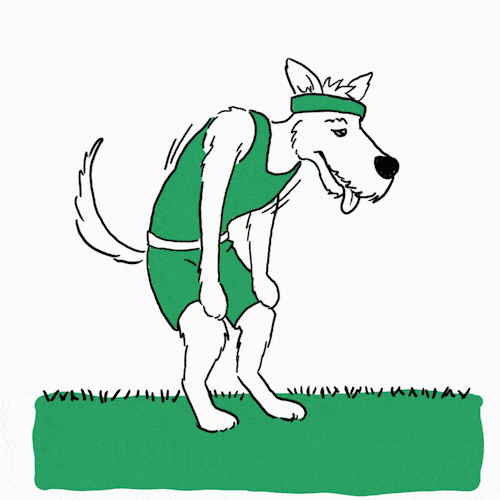
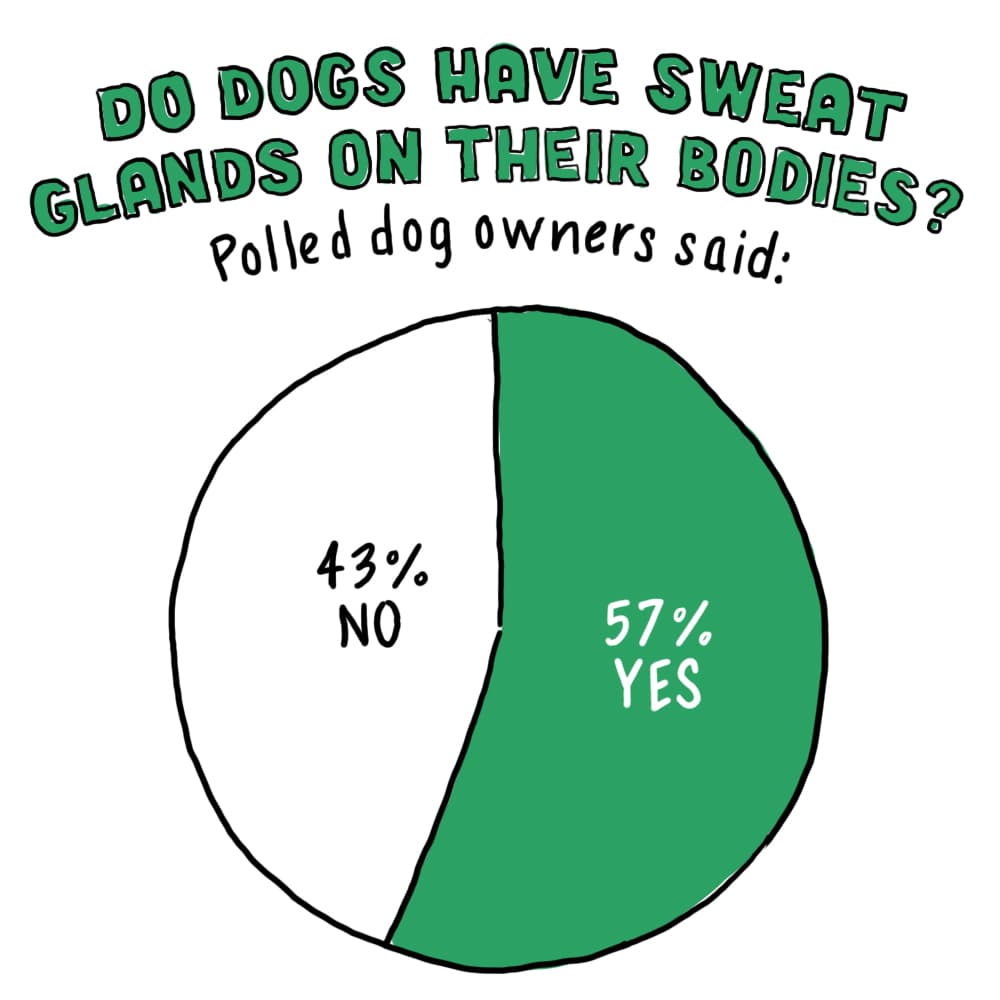
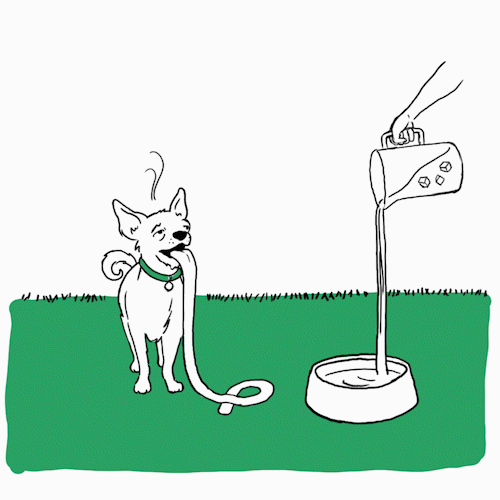

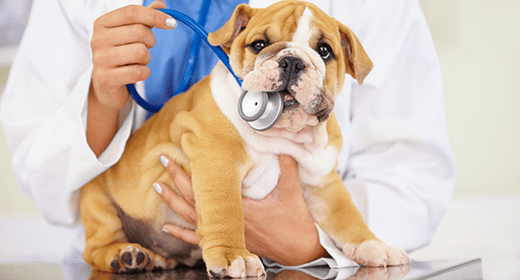
Congratulations! You're the proud owner of a puppy. It's important to take steps now to ensure great puppy health. Louise Murray, DVM, director of the ASPCA's Bergh Memorial Animal Hospital in New York City and author of Vet Confidential (Ballantine, 2008), offers these pointers for your puppy's first year.
Talk to friends to find a veterinarian you can trust. Within a week of bringing your puppy home, take him for a checkup. The doctor will perform a physical and start keeping a detailed medical history.
The overvaccination of pets is currently a hot topic, Murray says. The question is, however, not whether to vaccinate but which vaccines to use and how often. What she calls the 'core vaccines'—those for parvovirus, distemper, adenovirus type 2, and rabies—are essential. 'These shots protect your dog from diseases that are very real, very common, and very dangerous,' she says. Additional vaccines may be necessary based on where you live, where you take your dog, and whether you travel.
Choose a reputable brand of dog food and discuss your choice with your veterinarian. In his first year, your puppy will be on food that is specifically geared toward younger dogs and will likely eat three times a day rather than once or twice.
An excellent measure against pet overpopulation, this procedure ideally should be performed between ages 4 and 5 months, which is before a female dog goes into her first heat and before a male enters puberty. A female dog who is spayed before going into heat is 2,000 times less likely to get breast cancer, Murray says. Males who are neutered before entering puberty have fewer behavioral issues, such as aggression toward other dogs and urine marking.
Puppy Health: Flea, Tick, and Heartworm Medicines
Most dogs should be on medicine year-round to prevent heartworm, a life-threatening parasitic infestation, Murray says. Fleas, often seen as just an annoyance, can actually cause severe skin problems and even anemia. Ticks carry multiple diseases (including Lyme disease and Rocky Mountain Spotted Fever). Your veterinarian can prescribe effective preventives for these two problems.